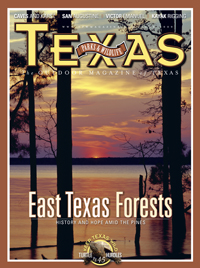
Texas Reader: Federico Villalba’s Texas
A Mexican pioneer’s life in the Big Bend.
By E. Dan Klepper
“Federico Villalba was a restless young man, not of a mind to settle down, at least not in Aldama. From the time he was a teenager, he’d made it clear that his future was not in the old mission village north of Ciudad Chihuahua, formerly called San Geronimo. “The Villalbas were of a noble Spanish blood. It appeared that the family lived a life of privilege. They were owners of the largest mercantile operation in the city and wealthy landowners, an enviable position to be in, by most standards.
“There was one very glaring negative aspect, however — they were criollos. In the Spanish colonial castas (caste system), a criollo was a person born in the Spanish colonies deemed to have “pureza de sangre” (purity of blood) with respect to the individual’s European ancestry. The Villalbas did not prescribe to any tenet of superiority. Their light skin, eyes of color and wealth, however, were constant reminders of their origins. Feared by some, resented by others, the Villalbas, like other criollos were vestiges of Spanish rule. They were regarded as just so much rotting flesh on a carcass long dead.”
I will no doubt disappoint fellow telenovela fans when I reveal that this is not the introduction to the latest plotline for Fuego en la Sangre. However, Univision — take note! Juan Manuel Casas’ sweeping historical biography of the life of his great-grandfather, Federico Villalba, unravels like the best of novellas. Villalba and his family arrived in the Rio Grande River country of West Texas during the 1880s, eventually crossing over to run ranches, discover cinnabar and establish the Big Bend’s renowned Study Butte store. Romance, rustling, gunfighting and contraband were all part of the Villalba drama, familiar agents in the pioneer struggle to settle Texas’ Big Bend region.
“In writing this family history,” the author explains, “I’ve used the facts of the major events in my family’s story as they were passed down orally and in writing. I’ve woven these facts into a narrative that I hope conveys what the people in my family were thinking and feeling when these events occurred.” Casas has done a remarkable job of bringing his family’s history to life, drawing as much from documentation as from memory — the two pillars of historical recreation. But it is Casas’ talent for dialogue that restores the memories of the past with its vigor and ring of truth. In the following excerpt, Villalba is attempting to quell his son’s temper after he learns that the Brewster County sheriff has been slow to pursue Anglo rustlers who were causing the Villalbas trouble.
“‘Settle down. Let the man do his job. This is a big Texas, my son,’ said Federico, pausing in reflection. ‘We will deal with many challenges. Our responsibility is to maintain our civility and not be drawn into violence by scoundrels. No man should have the power to draw us away from our dreams. Anglos may see us as an inferior people, incapable of ruling our lives and shaping our own destiny, but history will see us different. This land prospers because of our wisdom, our blood and our sweat. This will be our legacy. The rustlers will have to answer to the law.’”
Federico Villalba’s Texas (Iron Mountain Press) is a lively addition to Texas history and an important work in the canon of Big Bend literature. Casas has written a compelling narrative from the point of view of the Mexican culture, enriching our understanding of the West Texas past.

